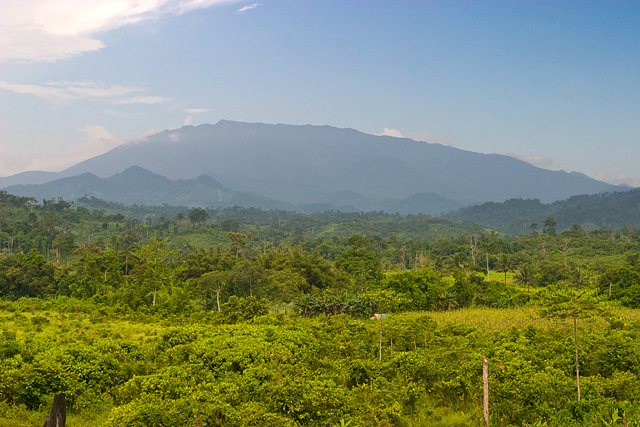The Supreme Court has issued a writ of kalikasan against the Department of Environment and Natural Resources (DENR), Mines and Geosciences Bureau (MGB), Ipilan Nickel Corporation (INC) and Celestial Nickel Mining and Exploration Corporation (Celestial Mining), ordering them to file a verified return of the writ within a non-extendible period of 10 days from receipt of the order.
During deliberations on August 15, 2023, the Supreme Court En Banc resolved to grant the Petition for Writ of Kalikasan, under the Rules of Procedure for Environmental Cases, filed by the Indigenous Cultural Communities (ICCs) of BICAMM Ancestral Domain, Brooke’s Point, Palawan against the DENR, MGB, INC, and Celestial Mining.
In 1993, the Republic of the Philippines and Celestial Mining entered into a Mineral Production Sharing Agreement (MPSA) covering 2,835.06 hectares of land located in Brooke’s Point, Palawan, with INC as the designated mining operator. The original MPSA had a term of 25 years.
According to the ICCs, who are indigenous peoples (IPs) with ancestral domains in the areas of Barangay Barongbarong, Uoulan, Calasaguen, Aribungos, Mambalot, and Maasin in Brooke’s Point, Palawan, the MPSA covered areas within the National Integrated Protected Areas System, specifically the area within the Mt. Mantalingahan Mountain range.
When notified by then DENR Secretary Regina Paz L. Lopez that its Environmental Compliance Certificate (ECC) expired in October 2015, INC and Celestial nevertheless continued with their tree-cutting activities which the ICCs claim have caused the deforestation of Mt. Mantalingahan.
Similarly, in 2018, after INC failed to secure a Certificate Precondition from the National Commission on Indigenous Peoples (NCIP) for the renewal of the MPSA, INC still continued with its mining operations.
On December 21, 2020, then DENR Secretary Roy Cimatu issued an order reckoning the effectivity date of the MPSA to the year it was amended in 2000, and not the year it was originally executed in 1993. The order, in effect, extended the MPSA until April 10, 2025.
On May 30, 2022, the DENR Community Environment and Natural Resources Office issued a cease-and-desist order directing INC to halt its port construction for the lack of a valid Miscellaneous Lease Agreement approved by the DENR MIMAROPA Regional Office. This was followed by a resolution by the Sangguniang Bayan of Brooke’s Point requesting the MGB to investigate the mining areas claimed by INC and recall issued permits pending investigation. However, no action was taken by the MGB on the request.
This prompted the Sangguniang Bayan to issue another resolution urging President Ferdinand R. Marcos, Jr., through the DENR Secretary, to investigate INC’s operation despite the absence of the following crucial government permits: (1) clearance from the Protected Area Management Boards; and (2) Certificate of Precondition from NCIP, as well as the extension of the MPSA without the endorsement of the various local government units of Brooke’s Point.
On September 19, 2022, the Sangguniang Bayan, in a resolution, urged the Palawan Council for Sustainable Development to recall INC’s Strategic Environmental Plan Clearance System due to numerous violations committed by INC, such as illegal cutting of trees, absence of public consultation, unsupervised cutting of trees, use of unregistered chainsaws, and excavation and hauling of minerals, all of which adversely affect the life and health of Brooke’s Point’s residents.
On June 20, 2023, the NCIP ordered the suspension and deferral of the free and prior informed consent process of INC and Celestial Mining due to complaints from the ICCs and reports of bribery by INC to elicit support from IPs.
All these prompted the filing by the ICCs before the Supreme Court of the present petition for the issuance of writ of kalikasan on the following grounds: (1) the MPSA contract area overlaps a protected area not open to mining operations; (2) the MPSA was illegally extended to 2025; (3) INC and Celestial Mining are guilty of illegal cutting of trees without permit and even with the expiration of its ECC; (4) INC and Celestial Mining engaged in illegal mining operations without Certificate Precondition from NCIP; and (5) the environmental destruction was caused by the inaction and omission of the DENR and the mining activities of INC and Celestial Mining.
In granting the ICCs’ petition, the Supreme Court held that the following must be present for the grant of a writ of kalikasan: (1) Petitioner must sufficiently allege and prove the actual or threatened violation of the constitutional right to a balanced and healthful ecology; (2) The actual or threatened violation should stem from the unlawful act or omission of a public official or employee, or private individual or entity; and (3) The actual or threatened violation should be shown to lead to an environmental damage of such magnitude as to prejudice the life, health, or property of inhabitants in two or more cities or provinces.
In the case of the ICCs, the Court found that all of the requisites are present: (1) The mining operations by INC and Celestial Mining may cause irreparable environmental damage to the Mt. Mantalingahan protected area and the ICCs’ ancestral domain; (2) The mining operations of INC and Celestial Mining, as exacerbated by the lack of action by the DENR and MGB, place the residents of Brooke’s Point in peril; and (3) The Mt. Mantalingahan Mountain range covers several municipalities of Batarza, Brooke’s Point, Sofronio Española, Quezon, and Rizal, and the continued mining operations and excavation of nickel minerals lead to environmental damage in the said mountain ranges, as exhibited by extreme flooding and contamination of fishing areas, which continually prejudice the life, health, and property of the residents.
The Court also applied the precautionary principle, as laid down in the 2021 case of PTK2 H20 Corp. v. Court of Appeals. Under the principle, a project proponent is required to provide evidence to dispel concerns regarding potential harmful impact of a project to the environment, shifting the burden of evidence of harm away from those likely to suffer harm and onto those desiring to change the status quo.
In the present case, the Court found that there is a possibility of serious and irreversible harm on the environment and the inhabitants of Brooke’s Point located in the Mt. Mantalingahan Mountain Range. Thus, with the Court’s issuance of a writ of kalikasan, the project proponents, INC and Celestial, are required to provide evidence to dispel concerns regarding potential harmful impact of a project to the environment.
The same applies to the DENR and MGB, whose inaction over the strong pleas of the residents of Brooke’s Point shows their indifference to the rights of the ICCs to a balanced and healthful ecology, said the Court.
The Supreme Court Public Information Office shall upload a copy of the Resolution in G.R. No. 268140 (Indigenous Cultural Communities of BICAMM Ancestral Domain, Brooke’s Point, Palawan v. Office of the Secretary of the DENR, et al.) once it receives a copy of the same from the Office of the Clerk of Court En Banc. (Courtesy of the Supreme Court Public Information Office)

